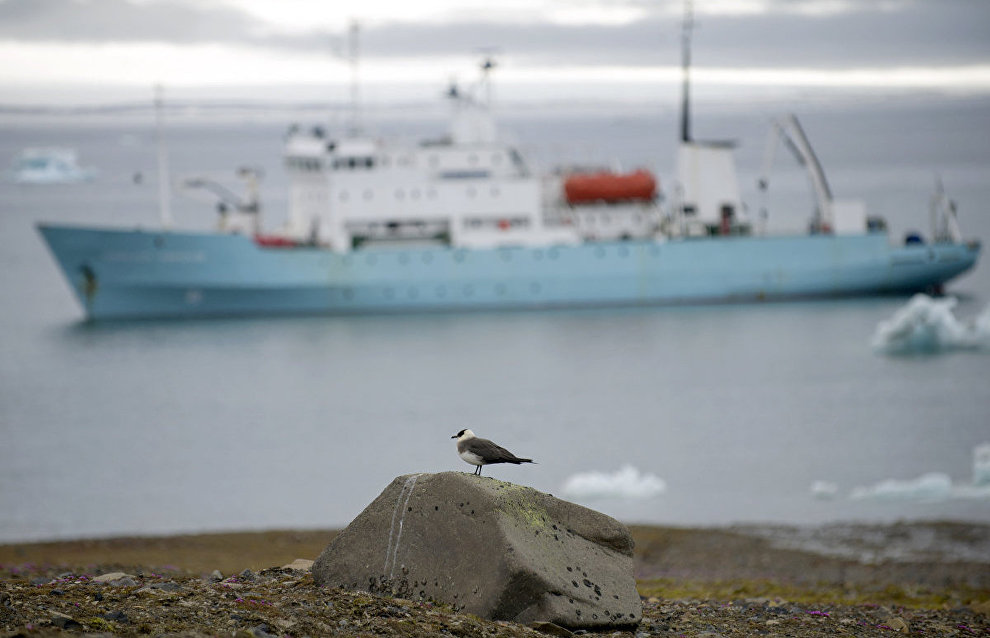Arctic Floating University 2016 expedition is complete
The Professor Molchanov research vessel returned to Arkhangelsk on June 27 with the crew and researches of the Russian Geographical Society's Arctic Floating University 2016 expedition, the Society's website reported. The purpose of this eighth expedition was to survey the changes in the ecosystems in the water areas, in the coastal areas of the archipelagos and on the islands of the Russian Arctic zone's western sector.
Over 20 days, the ship covered 3,300 miles across four Arctic seas, while completing all of the mission's objectives. "Most of the natural and other processes have already been identified at the other coastal island and mainland territories. These include the weathering and erosion of the coastal area, and historical-cultural heritage disappearing due to the warming and spread of destructive bacteria," Head of the Arctic Floating University 2016 expedition, Konstantin Zaikov said.
Mr. Zaikov added that the research resulted in several interesting discoveries. For example, bird populations were found whose existence was unproven. In addition, ancient colonies of coral dating to about 350,000 years B.C. were discovered in the Russian Harbor of Novaya Zemlya.
Under the expedition, a comprehensive aerial survey of birds was conducted above the Novaya Zemlya archipelago for the first time in the history of modern Russia. This allowed researchers to track bird colonies and include them on the National Atlas of the Arctic and the Birds of the Arctic database.
The expedition was carried out by the Russian Geographical Society in cooperation with the Northern (Arkhangelsk) Federal University and the Siberian branch of the Federal Service for Hydrometeorology and Environmental Monitoring. Overall it included 55 people from seven countries, among them 29 students and 21 researchers from 17 research institutes and universities in Russia. This year's foreign participants represented Indonesia, Norway, Germany, Switzerland, Canada and Brazil.
Next year, the expedition will be held as part of the Year of the Environment in Russia. One of the next exploration destinations will be Franz Josef Land.
